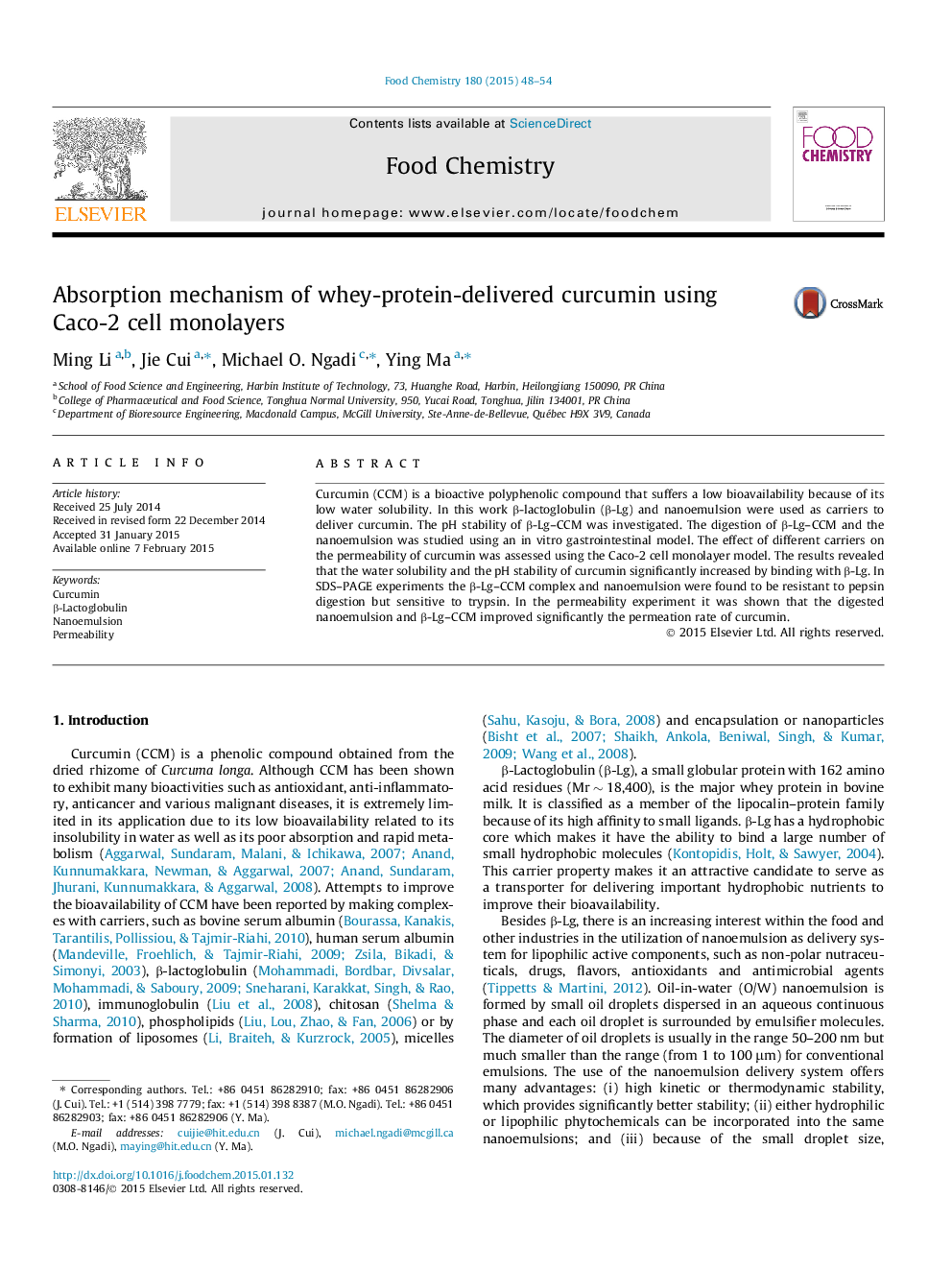| Article ID | Journal | Published Year | Pages | File Type |
|---|---|---|---|---|
| 1184476 | Food Chemistry | 2015 | 7 Pages |
•β-Lg–CCM complex and nanoemulsion improved the absorption rate of CCM.•The CCM in the nanoemulsion may be absorbed by the digestion–absorption route.•The hydrolysis of oil in nanoemulsion affected the absorption of CCM.•Upon combining with β-Lg the water solubility and pH stability of CCM increased.•Two different routes existed simultaneously in the absorption of CCM from complex.
Curcumin (CCM) is a bioactive polyphenolic compound that suffers a low bioavailability because of its low water solubility. In this work β-lactoglobulin (β-Lg) and nanoemulsion were used as carriers to deliver curcumin. The pH stability of β-Lg–CCM was investigated. The digestion of β-Lg–CCM and the nanoemulsion was studied using an in vitro gastrointestinal model. The effect of different carriers on the permeability of curcumin was assessed using the Caco-2 cell monolayer model. The results revealed that the water solubility and the pH stability of curcumin significantly increased by binding with β-Lg. In SDS–PAGE experiments the β-Lg–CCM complex and nanoemulsion were found to be resistant to pepsin digestion but sensitive to trypsin. In the permeability experiment it was shown that the digested nanoemulsion and β-Lg–CCM improved significantly the permeation rate of curcumin.
